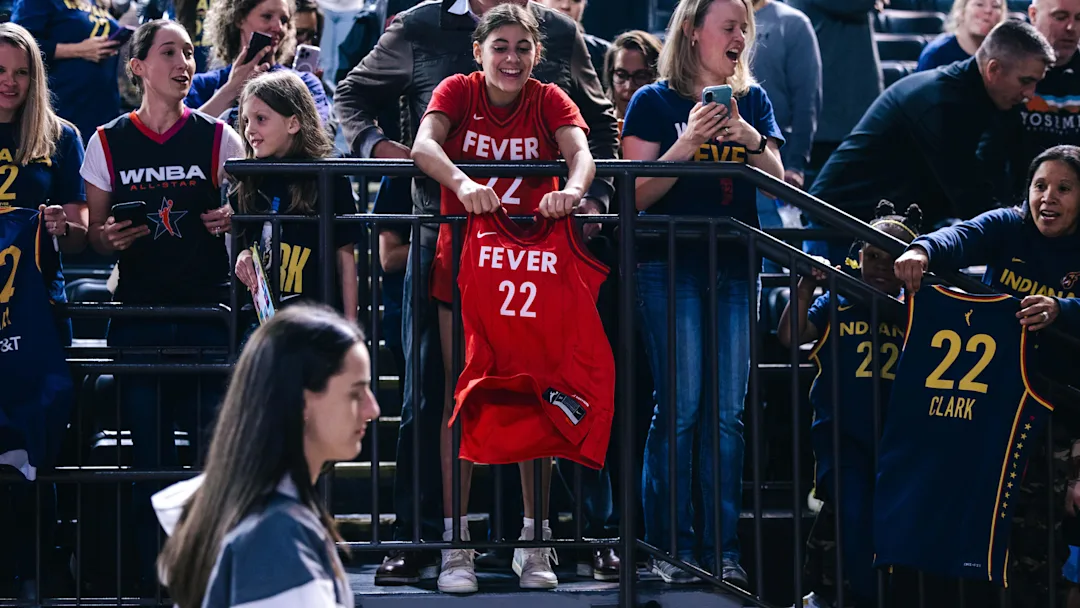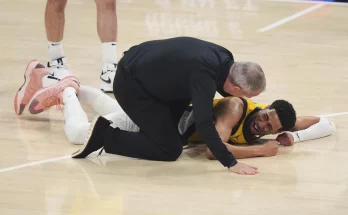When the Indiana Fever selected Caitlin Clark with the No. 1 overall pick in the 2024 WNBA Draft, they didn’t just draft a transcendent talent — they inherited a cultural force. Clark, a generational scorer and fan-favorite from her record-shattering days at Iowa, was the most anticipated rookie to enter the WNBA in decades. Her arrival sparked a new wave of national interest in the league, brought sellout crowds to cities that hadn’t seen that kind of energy in years, and immediately made the Fever the most talked-about team in professional women’s basketball. But with that spotlight came unprecedented scrutiny — and now, an audit.
The Indiana Fever, once a middling franchise struggling to stay relevant, have found themselves at the center of media, fan, and financial attention. While the feverish demand for tickets, merchandise, and access has been an economic windfall for the team and the WNBA, it also drew the attention of regulatory and oversight bodies tasked with ensuring ethical compliance across league operations. According to multiple sources close to the situation, the Fever are undergoing an audit that examines a range of financial practices — including ticket sales, NIL partnerships, revenue-sharing protocols, and sponsorship agreements — all of which exploded in volume and value following Clark’s arrival.
Caitlin Clark’s name became a magnet for fans and brands alike. Her college games consistently drew record-breaking TV ratings, and her jersey outsold every WNBA player’s before she even played a professional game. The Fever’s home and away games immediately became must-see events. The WNBA capitalized by adjusting its national TV schedule to feature more Indiana Fever games, and ticket prices across the league surged. Clark’s mere presence transformed the Fever into the hottest ticket in town — not just in Indianapolis, but in every WNBA city. Fans who once had their pick of seats in quiet arenas suddenly found themselves locked in digital queues behind thousands hoping to catch a glimpse of No. 22 in person.
This level of demand was new territory for the WNBA and its franchises. Though stars like Diana Taurasi, Candace Parker, and Breanna Stewart have enjoyed successful careers and helped grow the game, no one before Clark had ignited such a combination of media frenzy, corporate sponsorship, and public attention so quickly. For the Fever, a team that had finished near the bottom of the standings for several seasons and often played to half-full arenas, this surge in visibility brought logistical and administrative challenges they were arguably unprepared to manage at scale.
The audit, which reportedly began shortly after the start of the 2025 season, is not necessarily an accusation of wrongdoing but rather a response to irregularities and concerns raised by the explosive growth in the team’s financial dealings. Audits of this nature typically involve a review of financial records, ticket distribution logs, revenue statements, and sponsorship contracts. Sources indicate that the Fever’s partnership and marketing divisions have also come under examination, particularly in how they structured new endorsements and affiliations that blossomed with Clark’s arrival.
One key area of concern centers around ticket allocations and resale values. Several Fever games saw tickets sell out instantly, with reports of large blocks of seats being purchased by third-party vendors and scalpers, who then resold them at astronomical prices. The discrepancy between face value and resale value raised questions about whether team officials or insiders were benefitting from this arbitrage. While there is currently no public evidence of wrongdoing, such patterns often trigger reviews in professional sports, especially when sudden changes in demand distort pricing systems and access.
Another factor prompting the audit is the remarkable spike in sponsorship revenue. With Caitlin Clark as the centerpiece of their brand, the Fever attracted an influx of corporate interest. Local and national brands alike sought partnerships, endorsements, and cross-promotional deals. Industry insiders say the team negotiated several seven-figure deals in record time, raising concerns over whether contractual protocols were fully followed and whether the revenue was being shared equitably across league lines. The WNBA has historically operated on a revenue-sharing model to maintain competitive balance, so any perceived deviation from standard procedures — even unintentional — is closely monitored.
Moreover, Clark’s unique NIL (Name, Image, Likeness) profile adds complexity to the situation. Though NIL deals are commonplace in the NCAA, their presence in the professional sports ecosystem is still evolving. Clark’s brand, which includes multimillion-dollar deals with Nike, Gatorade, State Farm, and others, blurs the lines between personal endorsement and team-related promotion. The audit reportedly seeks to determine whether any of Clark’s private partnerships unduly influenced Fever operations or ticket promotions, especially if team staffers were involved in coordinating those efforts on behalf of sponsors.
There are also broader league implications to consider. Caitlin Clark’s meteoric rise has inadvertently exposed structural inefficiencies within the WNBA itself. Several owners and front office executives, speaking anonymously, have voiced concerns that the league’s current infrastructure — including its salary cap, revenue distribution, and marketing strategies — is not equipped to handle a superstar of Clark’s magnitude. Some believe the Fever’s situation is a case study in what happens when a franchise rockets from obscurity to prominence without sufficient regulatory guardrails. The audit may well serve as a blueprint for how the league will address future situations of hypergrowth around individual players.
While the Fever organization has not publicly commented in detail on the audit, sources within the franchise say they are cooperating fully with the review and believe it will ultimately validate their practices. Team officials view the audit as an unfortunate, though perhaps necessary, side effect of their sudden transformation into a national powerhouse. “When you go from 5,000 fans a night to 18,000, everything changes — everything,” said one anonymous source close to the front office. “We knew Caitlin was going to make an impact. We just didn’t realize how quickly the world would shift.”
Caitlin Clark, for her part, has not been implicated in any wrongdoing, nor is she believed to be the subject of the audit itself. Still, her influence is central to the story. Her name sells out arenas, drives social media traffic, and fuels hours of televised debate and coverage. Even beyond basketball, Clark has become a symbol of progress — proof that women’s sports can command the same attention, loyalty, and financial investment as their male counterparts when given the stage. But fame, particularly this sudden and immense, always brings with it another side: responsibility, surveillance, and the unrelenting weight of scrutiny.
The Fever’s audit represents more than just a financial review. It is, in many ways, a stress test of the WNBA’s ability to scale alongside its stars. For decades, advocates of women’s sports have asked, “What if we marketed women’s basketball the way we market men’s?” Caitlin Clark is the answer — and now, the consequences of that answer are being laid bare. The Fever are learning in real time what it means to manage success in a system that wasn’t necessarily built for it.
As the investigation continues, many across the basketball world are watching closely. There is hope that the audit will reinforce good practices and help the WNBA evolve its systems to better support growth. There’s also apprehension — that too much scrutiny or bureaucratic red tape could stifle the very momentum that Clark helped create. But perhaps most of all, there is recognition that this moment — complicated, imperfect, and groundbreaking — represents the future.
Caitlin Clark didn’t ask to change the game. She just did. Now the WNBA, and the Indiana Fever, must catch up.



